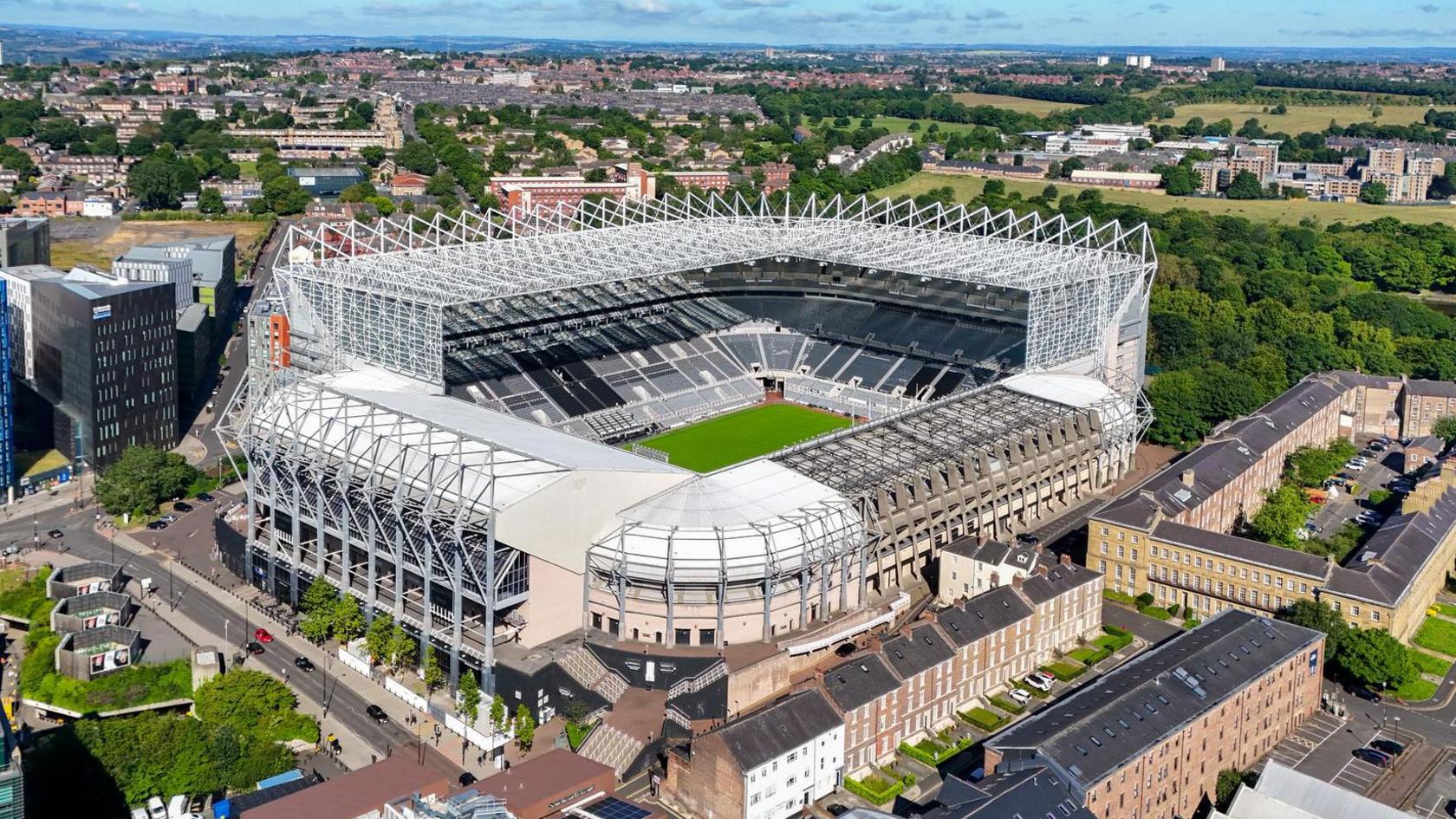Leaving St James' Park would feel like betrayal - Howe

Newcastle United have played their football at St James' Park since 1892
- Published
Manager Eddie Howe says it would feel like a "betrayal" if Newcastle were to move away from St James' Park.
Plans for leaving the stadium, which has been home to the club since 1892, were discussed at the Newcastle United Fan Advisory Board (FAB) on Monday.
Chief operating officer Brad Miller said they need to "understand alternative options" as part of the stadium feasibility process.
The study has entered its second phase, with more detailed analysis taking place to investigate project-related risks and opportunities before a decision stage begins in early 2025.
"My natural instinct was always to stay at St James' Park," Howe said.
"It's an incredible place to play football, it's our home, so to think about moving somewhere else feels a little bit of a betrayal to somewhere that's served us so well.
"But we are well aware that as a football club, we need to increase our revenue, so people with more brain cells will make the decision for the benefit of the long-term future of the football club, and that's always the most important thing."
The latest FAB meeting acknowledged that expanding the existing stadium "has several risks associated with it" and they "need to fully analyse those risks against the opportunities" to make an informed decision.
"It must provide an investable return, and not least deliver strong revenue growth to increase our PSR [profit and sustainability regulations] headroom, which, as everyone knows, means we can invest more in football," said Miller.
"Part of the process is also to understand alternative options so that we see the bigger picture and, again, find the right balance between risk and opportunity.
"This is a once-in-a-generation investment, so we don't want to look back in years to come, as a club or as a city, and regret an opportunity missed."
Saudi Arabia's Public Investment Fund and partners the Reuben Brothers are set to celebrate three years in charge of Newcastle next week.
St James' Park currently has a capacity of 52,000 and Miller added they are not at the decision-making stage yet, but are looking to "complete the next essential tasks" by early 2025.
Related topics
- Published26 July 2022